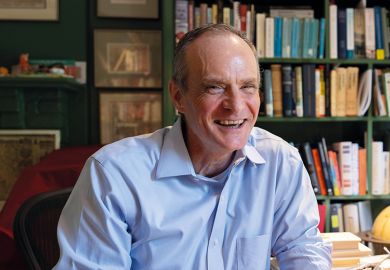Halfway through The Tipping Point I reached my tipping point. That was when I changed my mind about Malcolm Gladwell's thesis and decided that - although it has spurious attractions - most of it is just plausible tosh.
Gladwell believes popular trends cross a threshold after which, if the auguries are right, they spread like wildfire. He provides a few (but only a few) examples of this happening and shows how the changes were catalysed by tiny occurrences, which he calls "tipping points". Some of his examples are trivial (the unexpected trendiness of Hush Puppy shoes after a long period in fashion's doghouse); some are of historic importance (the Boston tea party rebellion, which eventually ousted the Brits from America); and some are of significant sociological interest (the rapid downturn of crime in New York in the 1990s).
In each case, Gladwell shows the abrupt change to have been the result of a concatenation of causes that he tries to categorise and turn into quasi-scientific "laws". (He even calls them laws.) Tipping points occur, Gladwell says, when individuals with particular personality traits are involved in an event. He identifies three categories of individual essential to a tipping point and gives each category a faddish name: connectors, mavens and salesmen. Connectors know an amazing number of people; mavens know an amazing number of facts; and salesmen know an amazing number of ways to persuade people to do what they want them to do. When, usually by accident, individuals from all three categories happen to get involved in the same event at the same time then - hey presto and whoosh - a tipping point may occur.
On the other hand, it may not. Because even the mystical combined power of connectors, mavens and salesmen will be inadequate if the putative change is not "sticky". That is, if other people do not take to it. How do we know whether a change will be sticky? Easy-peasy: it is a change that sticks. So if the right types of people are involved, and if the idea is sufficiently sticky, a tipping point may occur.
On the other hand, it may not. Because the "context" must also be right. The stars must, as it were, be in their right places. As Gladwell puts it, "the power of context" must enable the change to take place. No use getting connectors, mavens and salesmen to try to turn water into wine, then. Even if their efforts were sufficiently sticky, the power of context would be against them.
By now you will have spotted a whacking hole in The Tipping Point thesis: a circular hole. Gladwell starts with an outcome - the fashionableness of Hush Puppies, the American war of independence, the fall in New York crime or whatever - and then says the outcome is the result of a specific group of circumstances.
How do we know whether the same circumstances may not frequently occur without producing any particular outcome? We do not. Have there been seismic historical events that occurred without tipping points and without connectors, mavens, salesmen and the rest of Gladwell's jargon? There have. Most historical events, probably. So how do we know when connectors, mavens, salesmen, stickiness and context are causative and when they are not? We do not.
One of the reasons I changed my mind half way through The Tipping Point is that Gladwell reiterates the same evidence in support of his argument again and again.
Like an old gramophone record on which the needle has stuck, he regurgitates the anecdotes repeatedly. I began to feel that if I read about Paul Revere's thrilling ride through New England once more I would want to shoot the horse. (Revere was a connector, by the way, and his message was undeniably sticky. Backed by the power of context, too.)
All of which makes it sound as though The Tipping Point is ineffably silly. It is not. Gladwell is like a magpie who picks up fascinating facts and ideas, like baubles, and translates them into very readable prose. He is, in other words, an excellent journalist. And that is the trouble with The Tipping Point . It started out as a lightweight, and doubtless entertaining, New Yorker article. The author was then encouraged to turn it into a full-length book. That, no doubt, is when it became repetitive.
The tipping-point notion is an amusing flight of fancy, an idea worthy of a few moments' exploration in a trendy magazine. But as I was reading the book the power of context alerted me - without the help of a single maven or even any stickiness - to the fact that Gladwell was trying to advance his thesis as a serious piece of historical and social analysis.
No way. The Tipping Point is a patchwork quilt of ideas, some of which are individually interesting, but when stitched together they fail to stick together at the seams.
Winston Fletcher is chairman, Royal Institution, and communications director, FCB Europe.
The Tipping Point: How Little Things Can Make a Big Difference
Author - Malcolm Gladwell
ISBN - 0 316 64852 3
Publisher - Little, Brown & Co
Price - £14.99
Pages - 9
Register to continue
Why register?
- Registration is free and only takes a moment
- Once registered, you can read 3 articles a month
- Sign up for our newsletter
Subscribe
Or subscribe for unlimited access to:
- Unlimited access to news, views, insights & reviews
- Digital editions
- Digital access to THE’s university and college rankings analysis
Already registered or a current subscriber?



